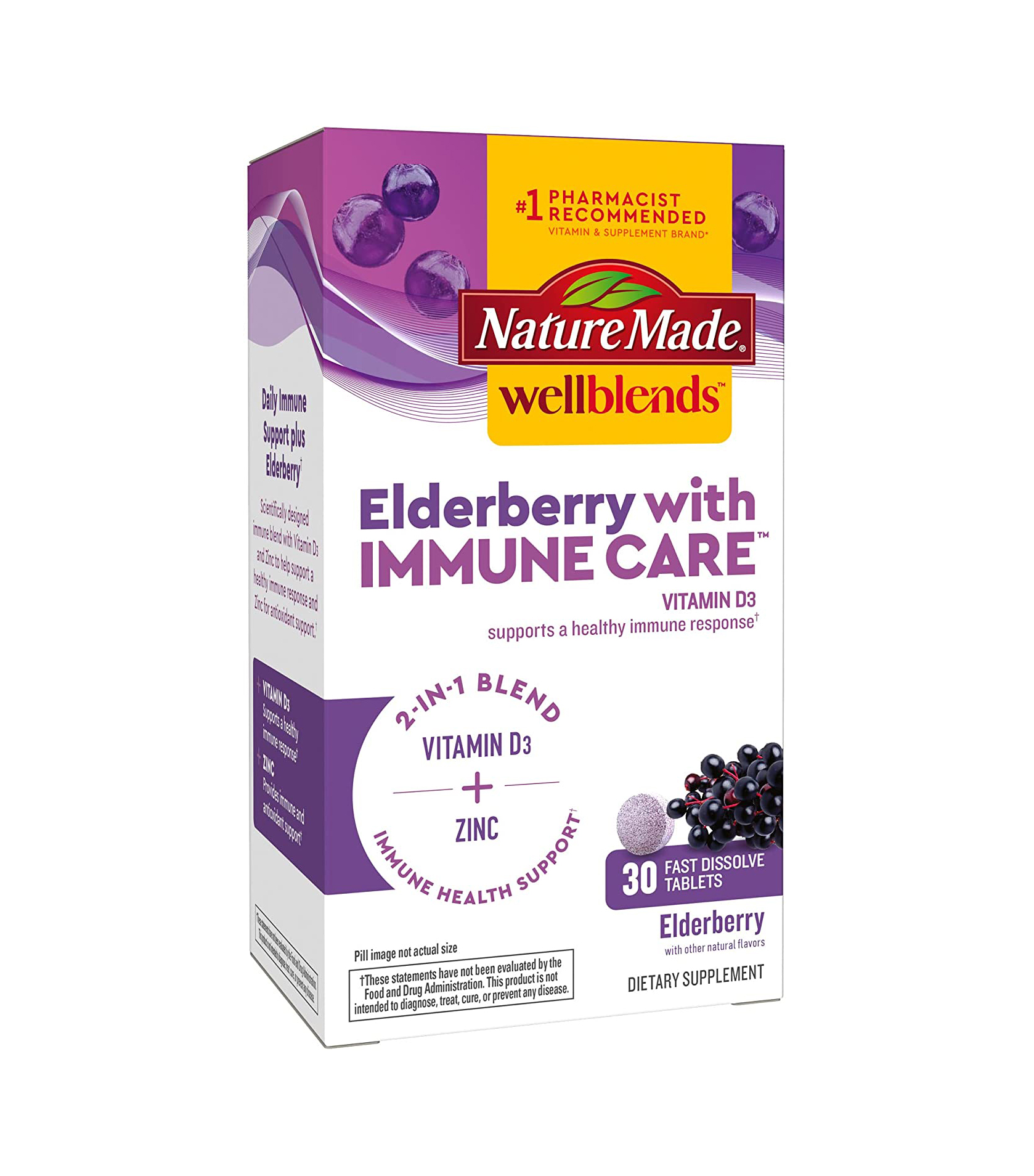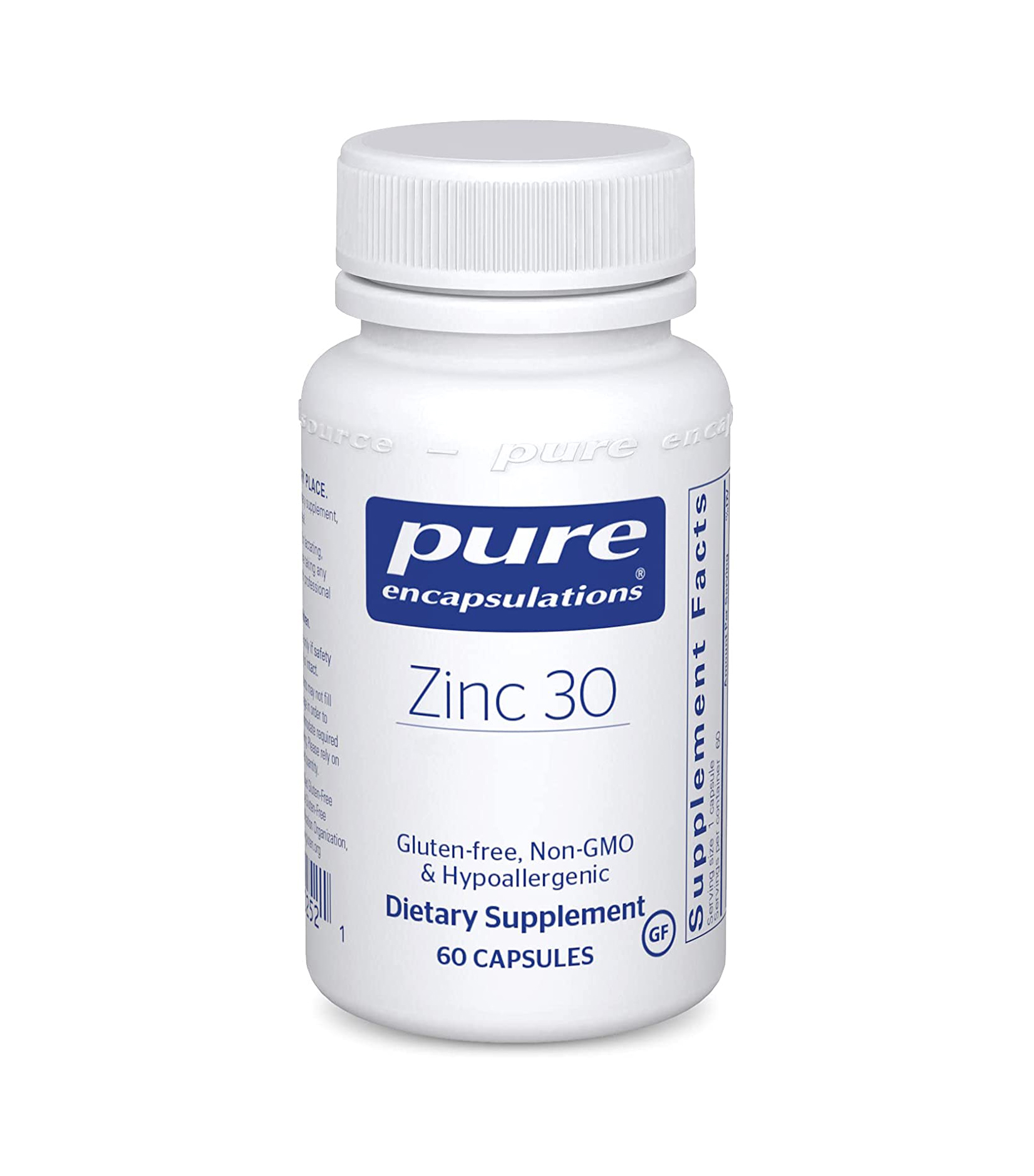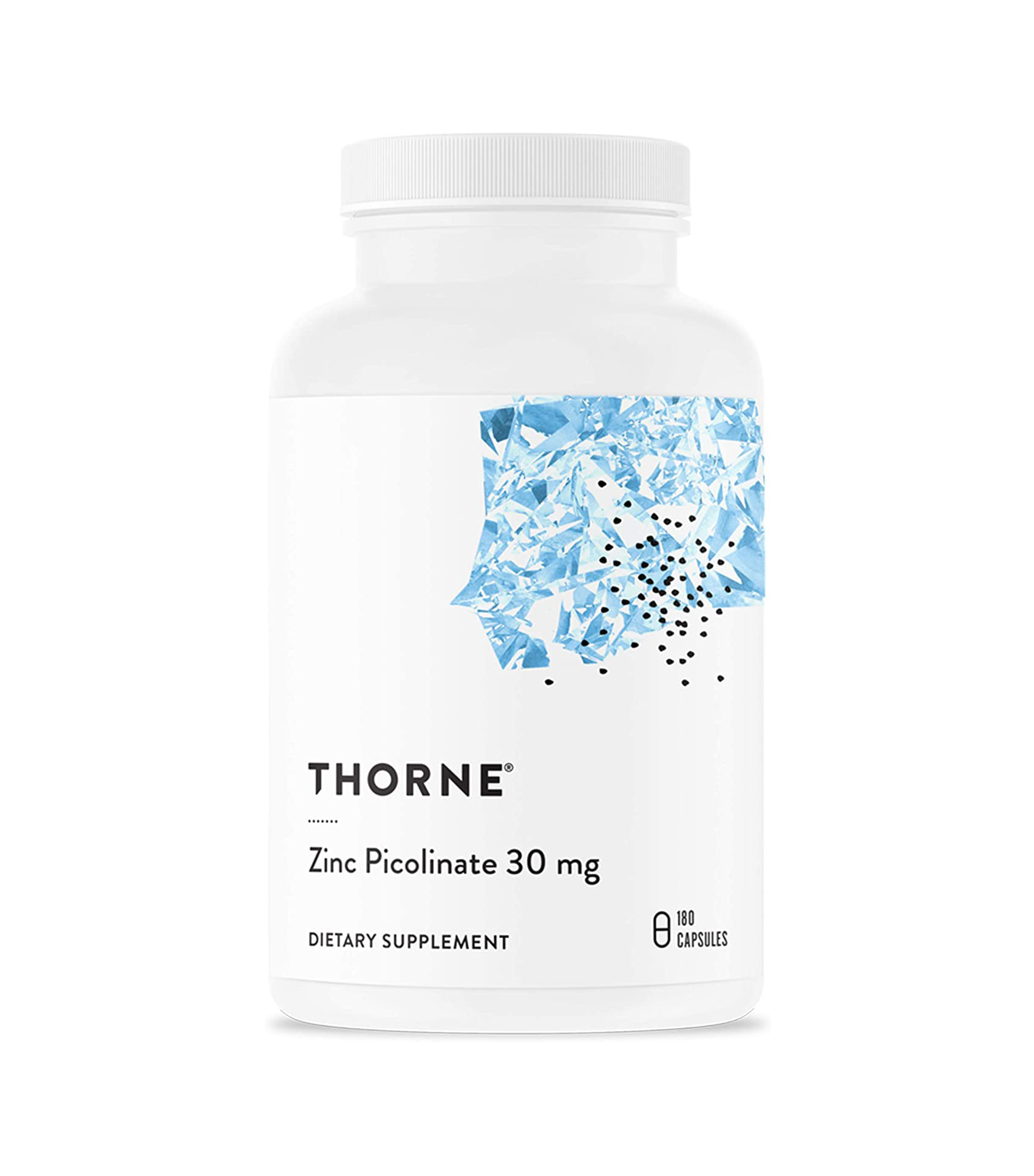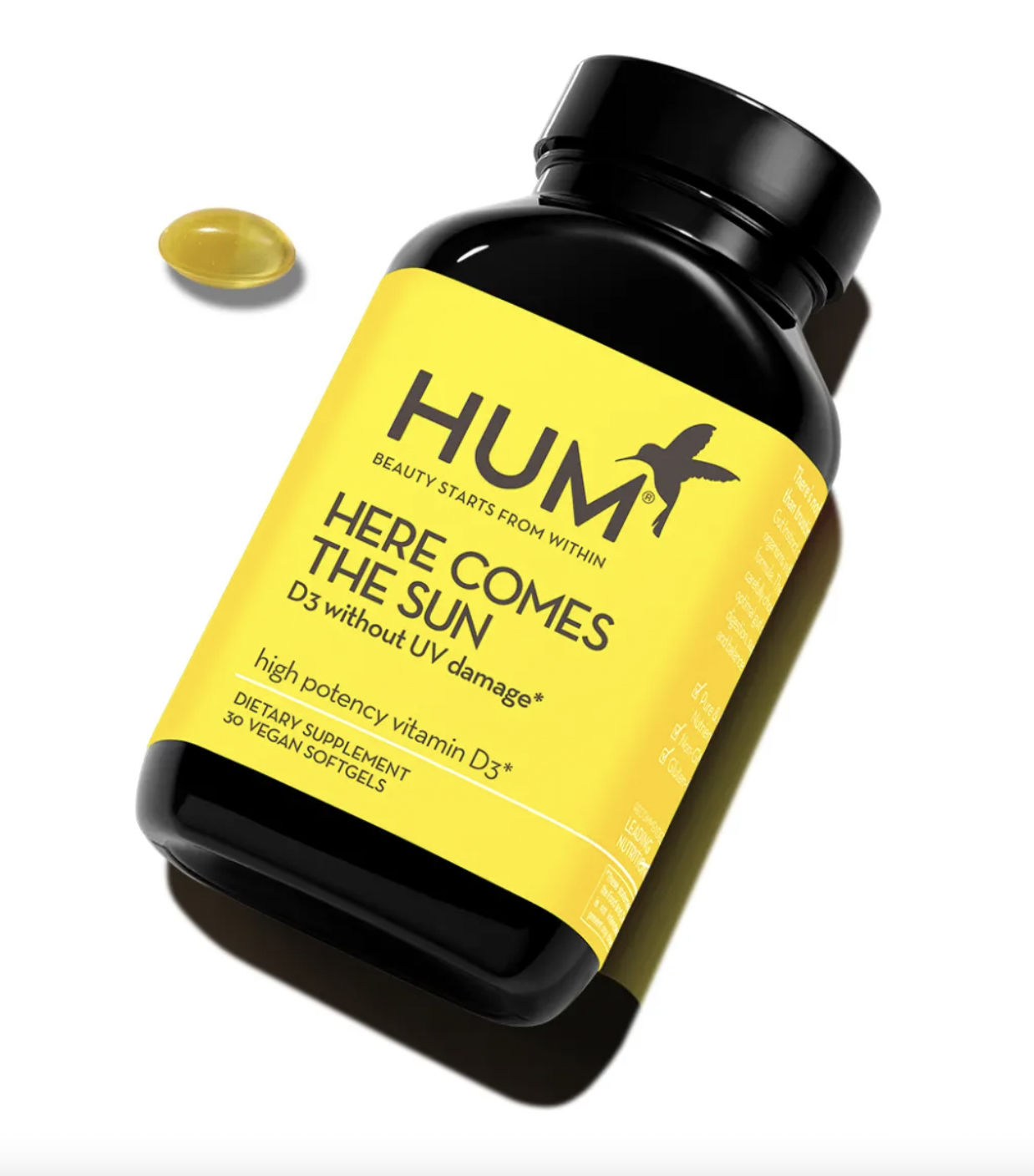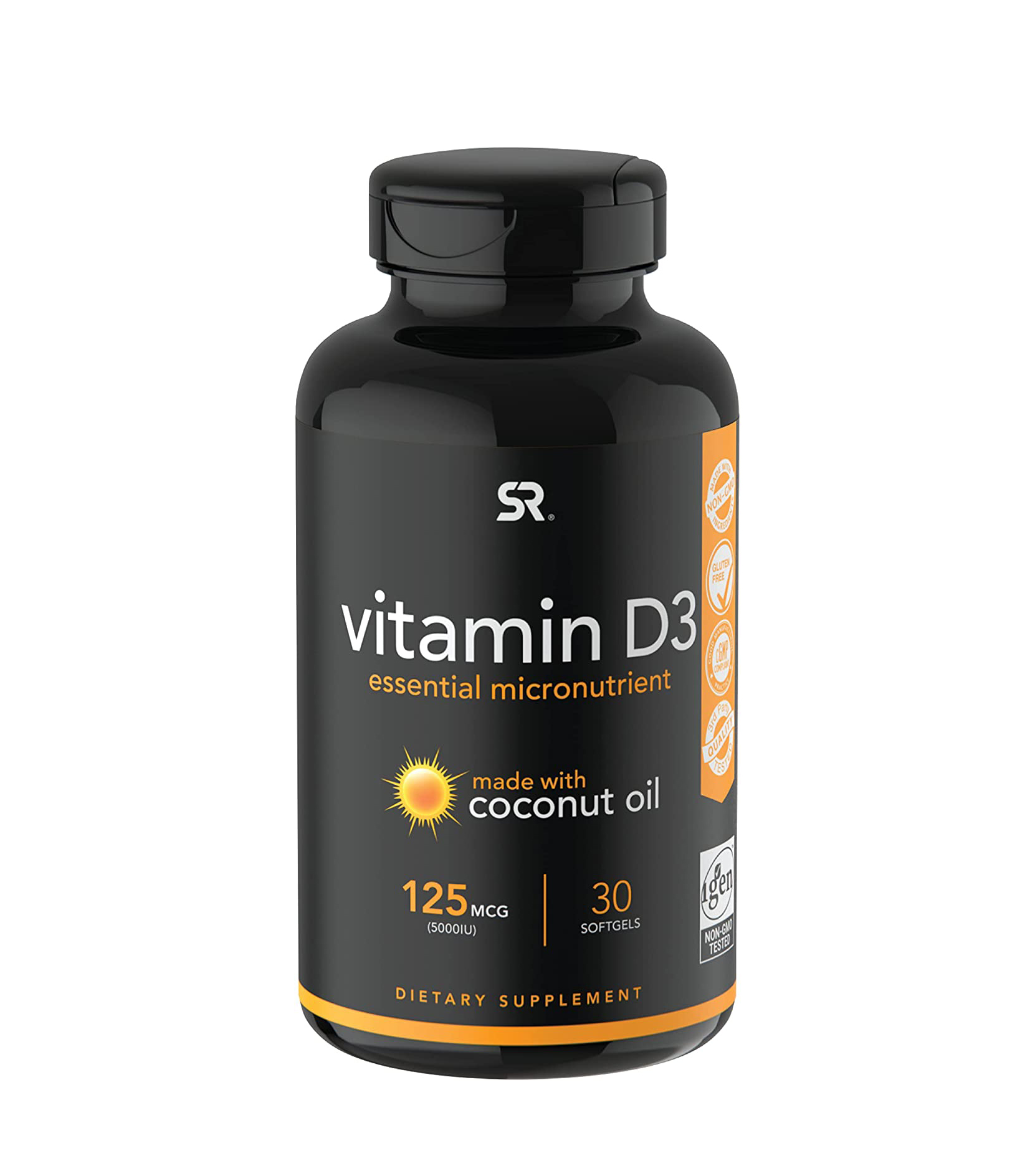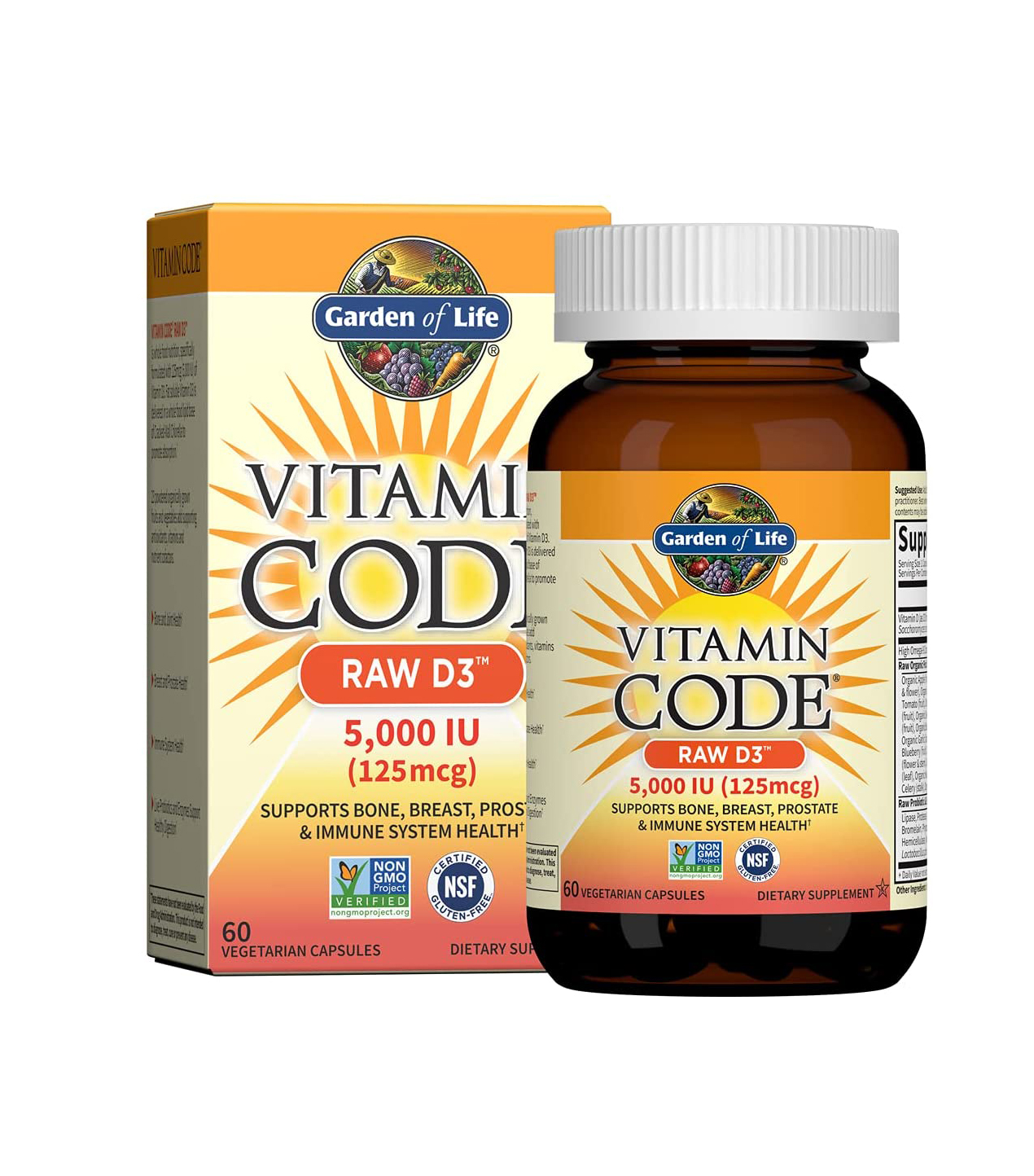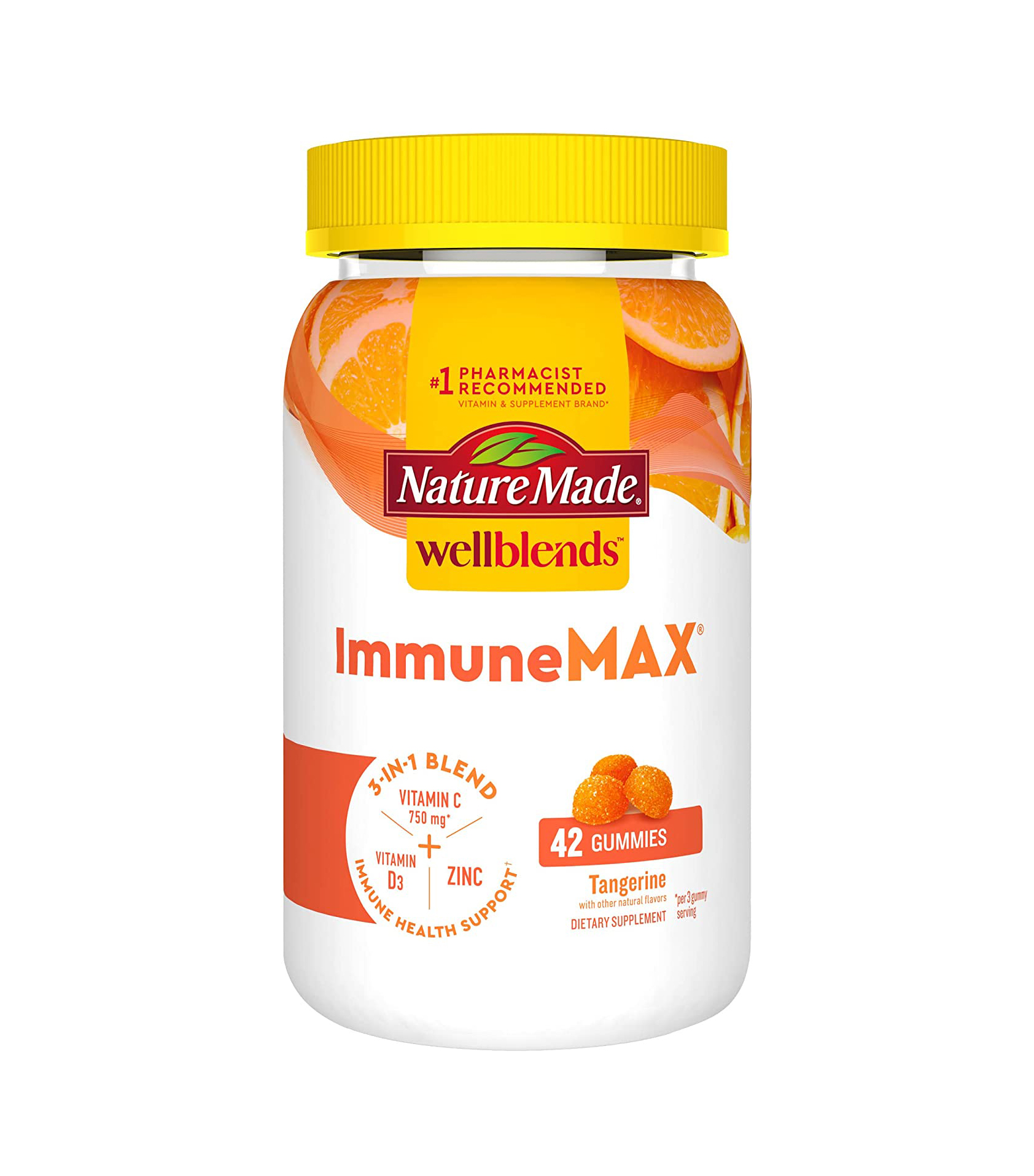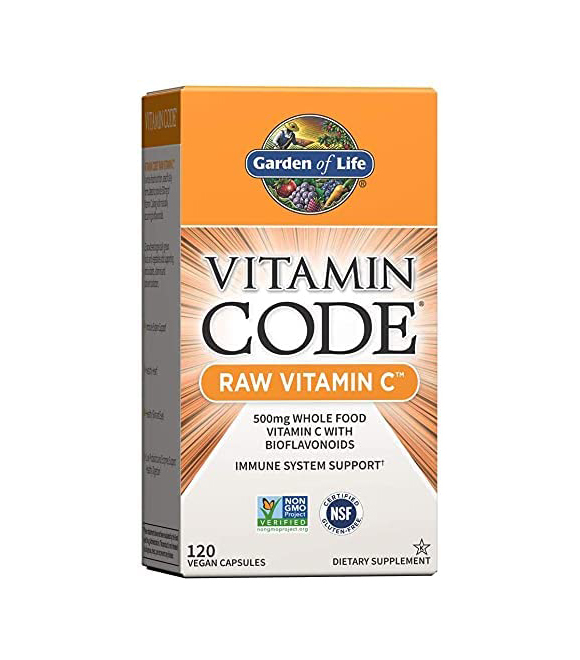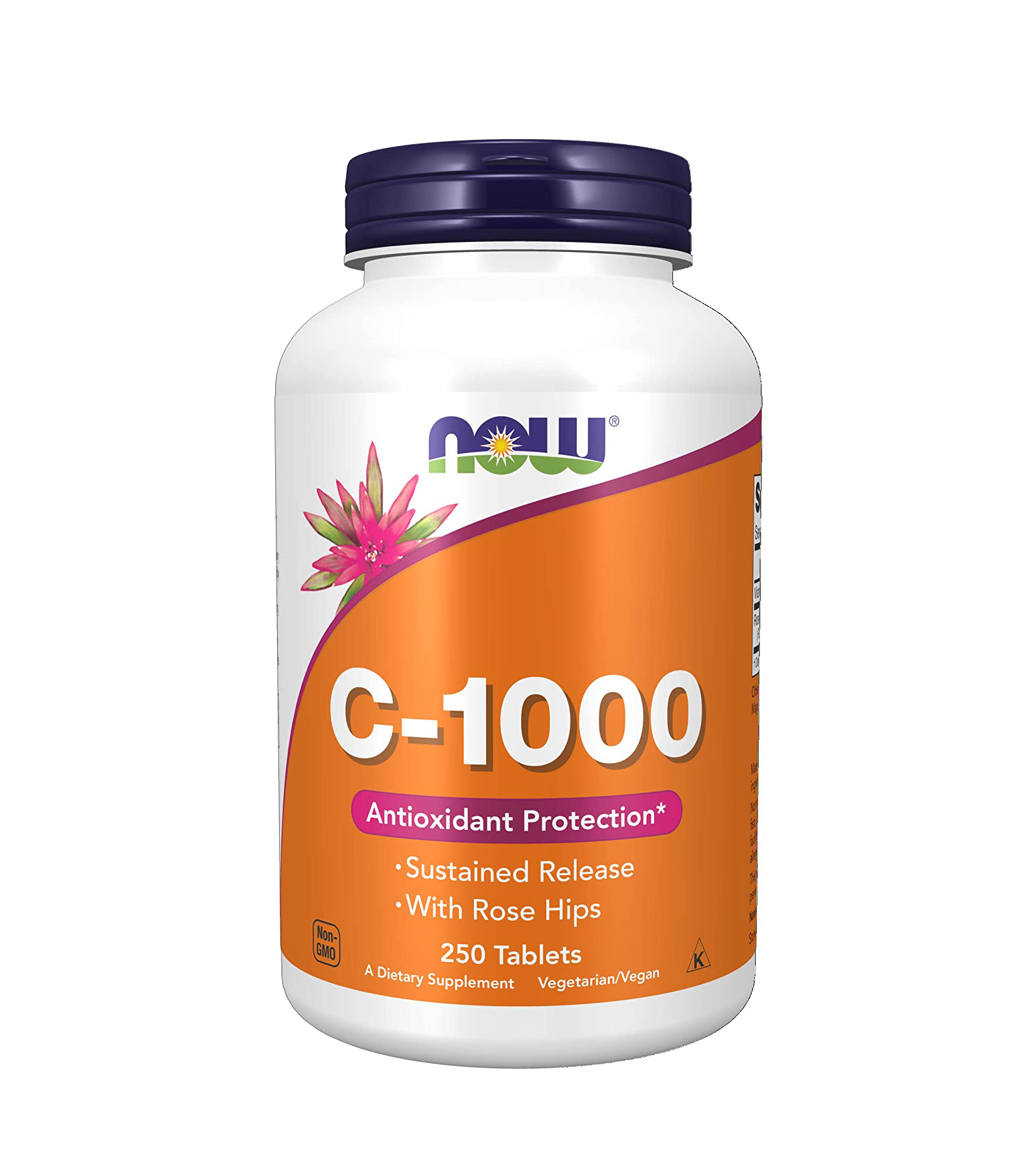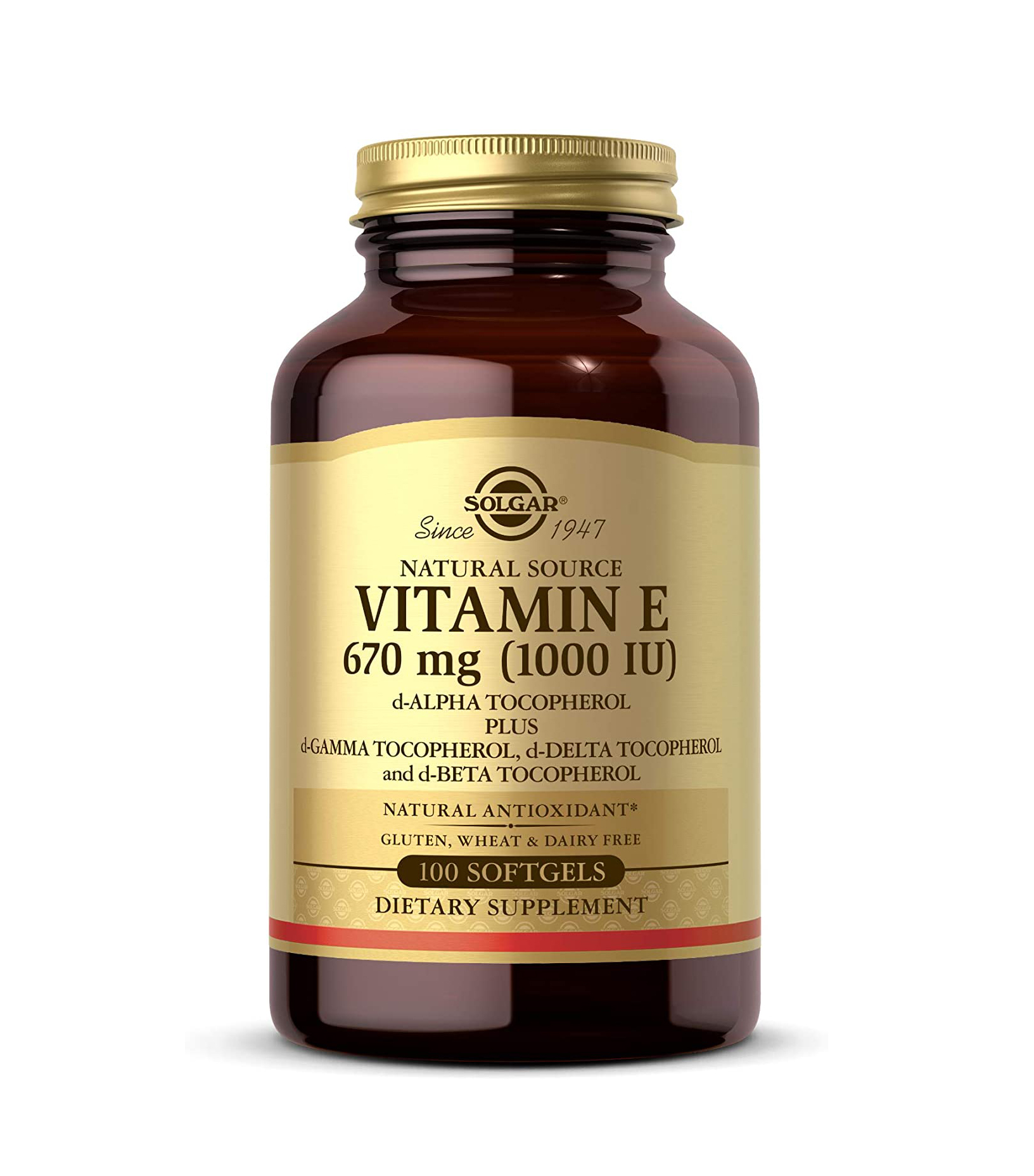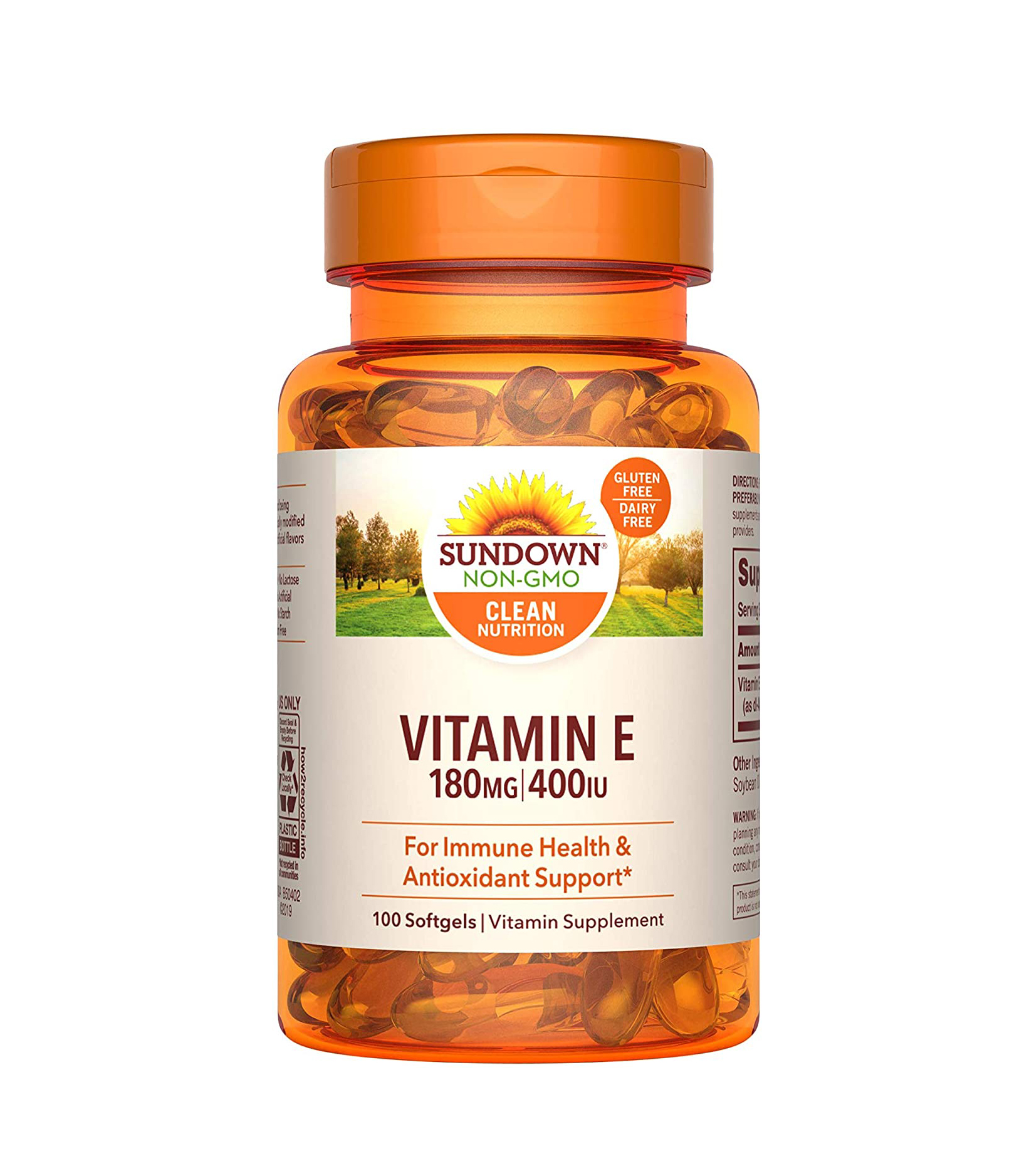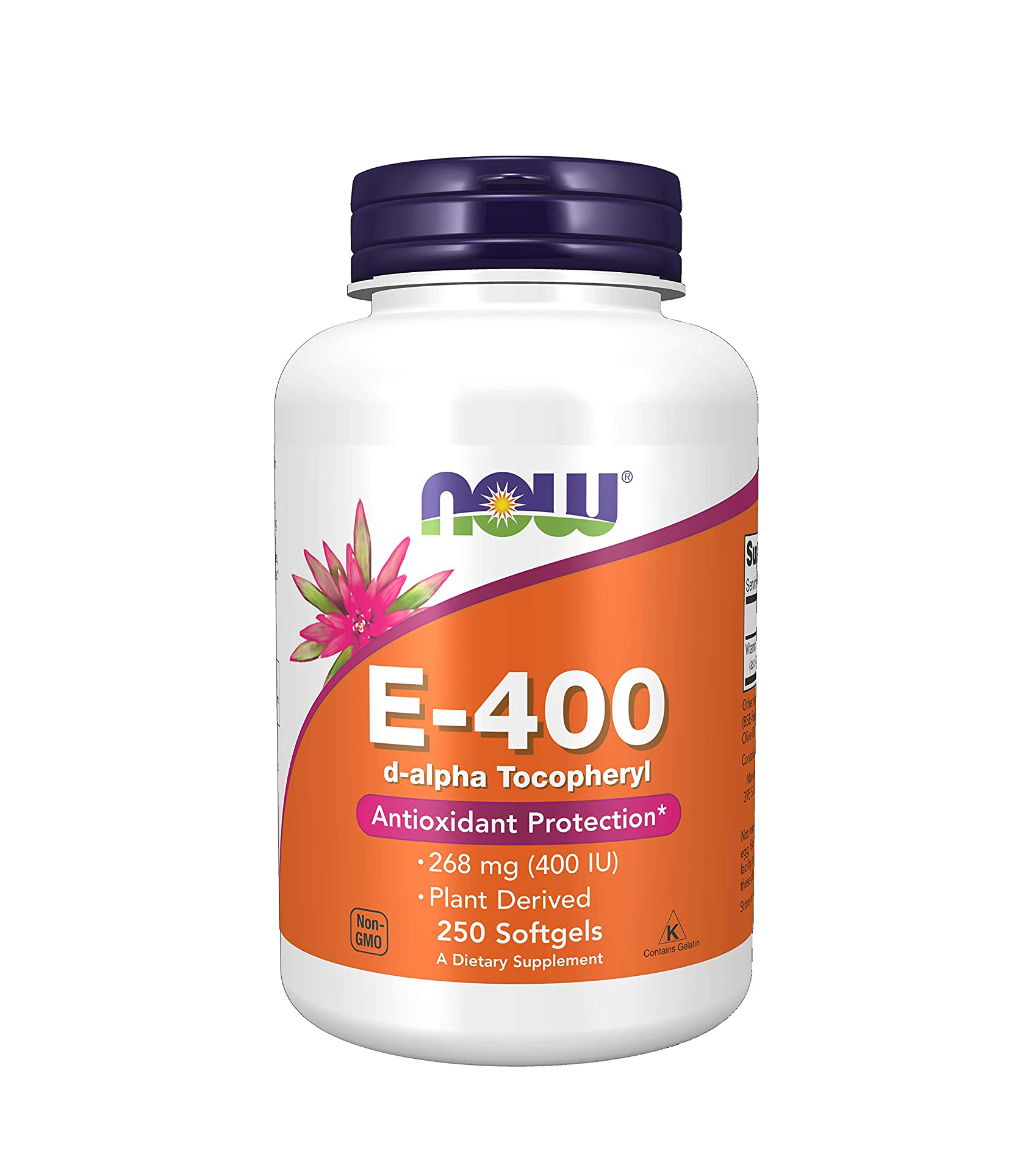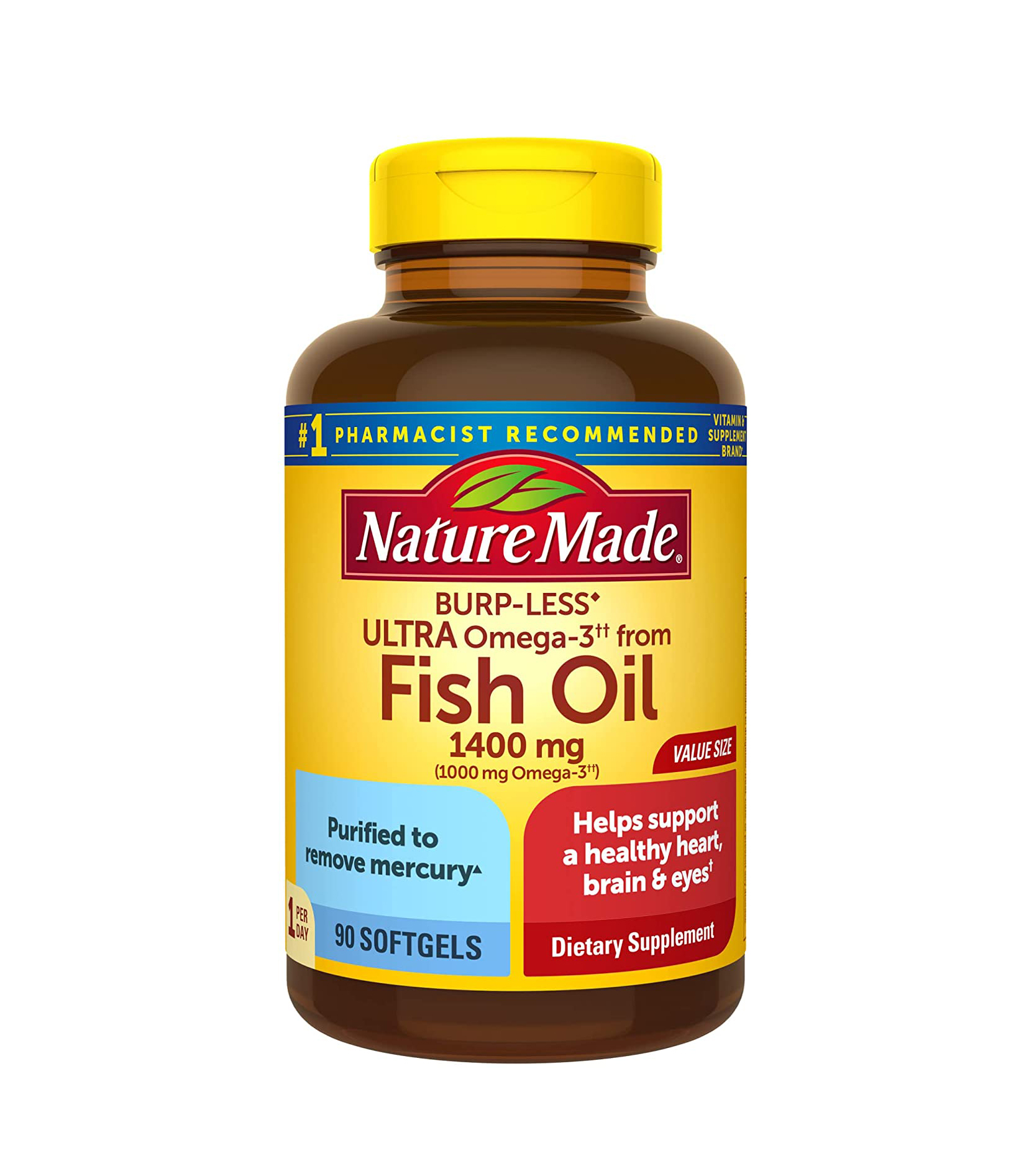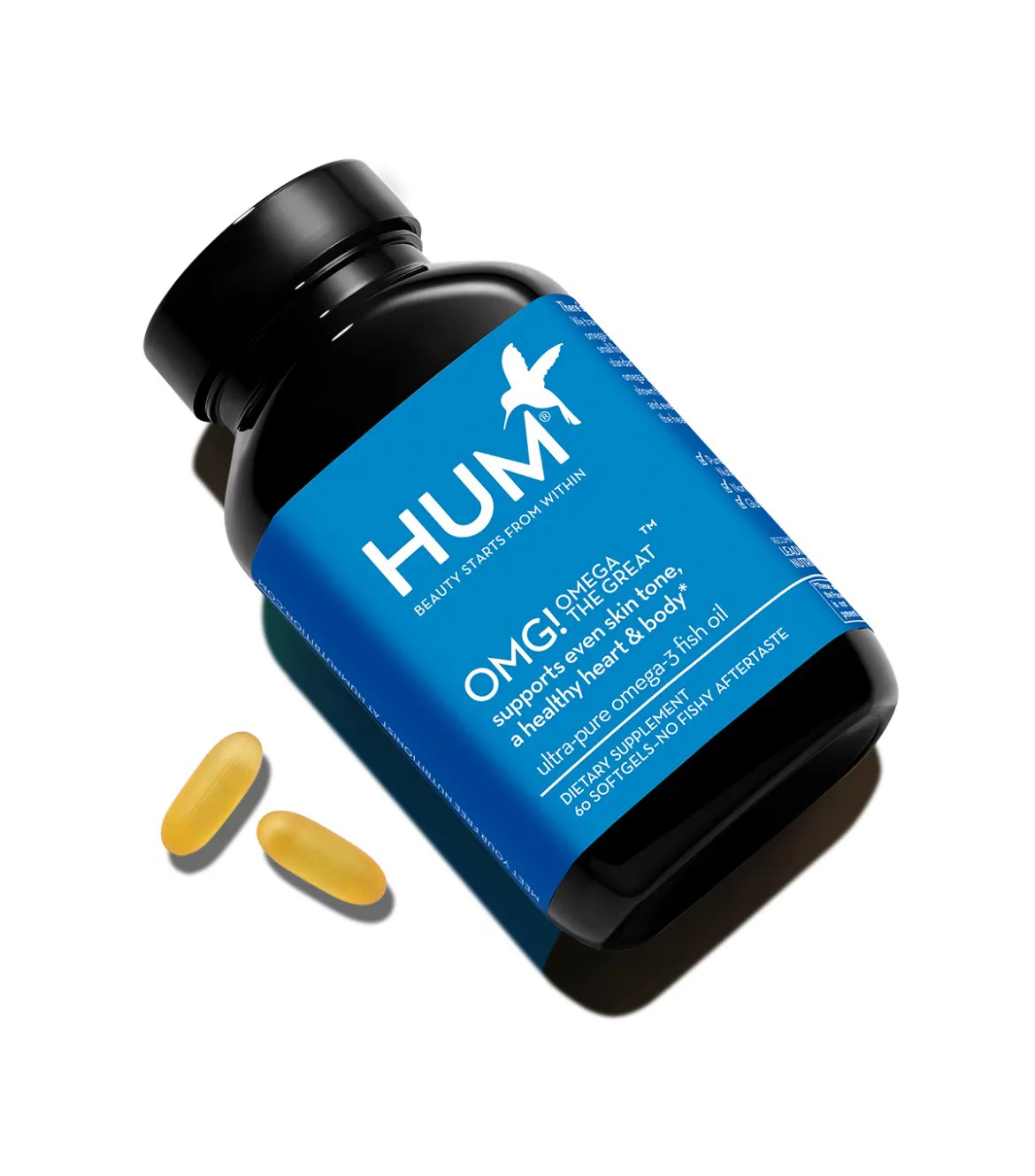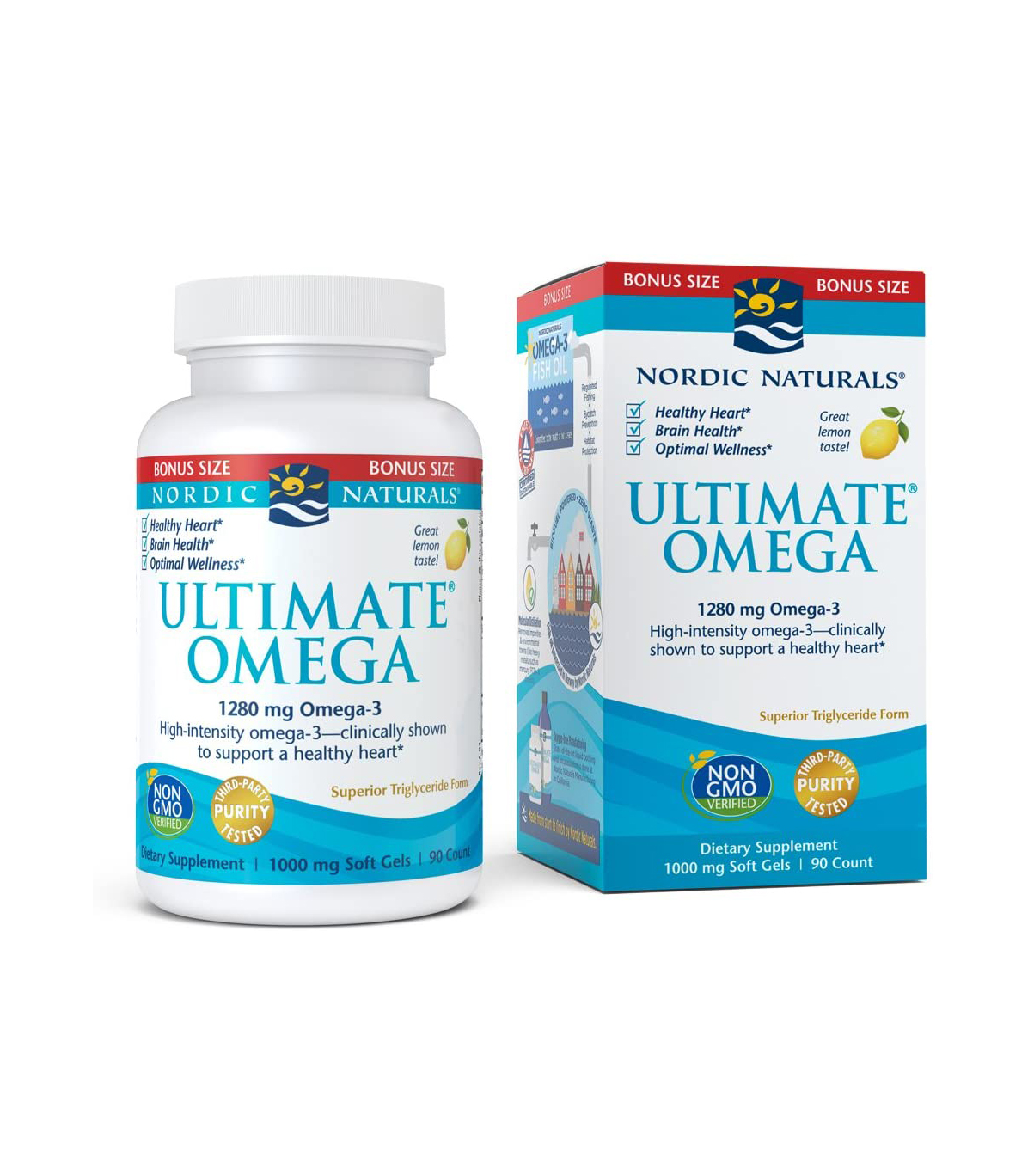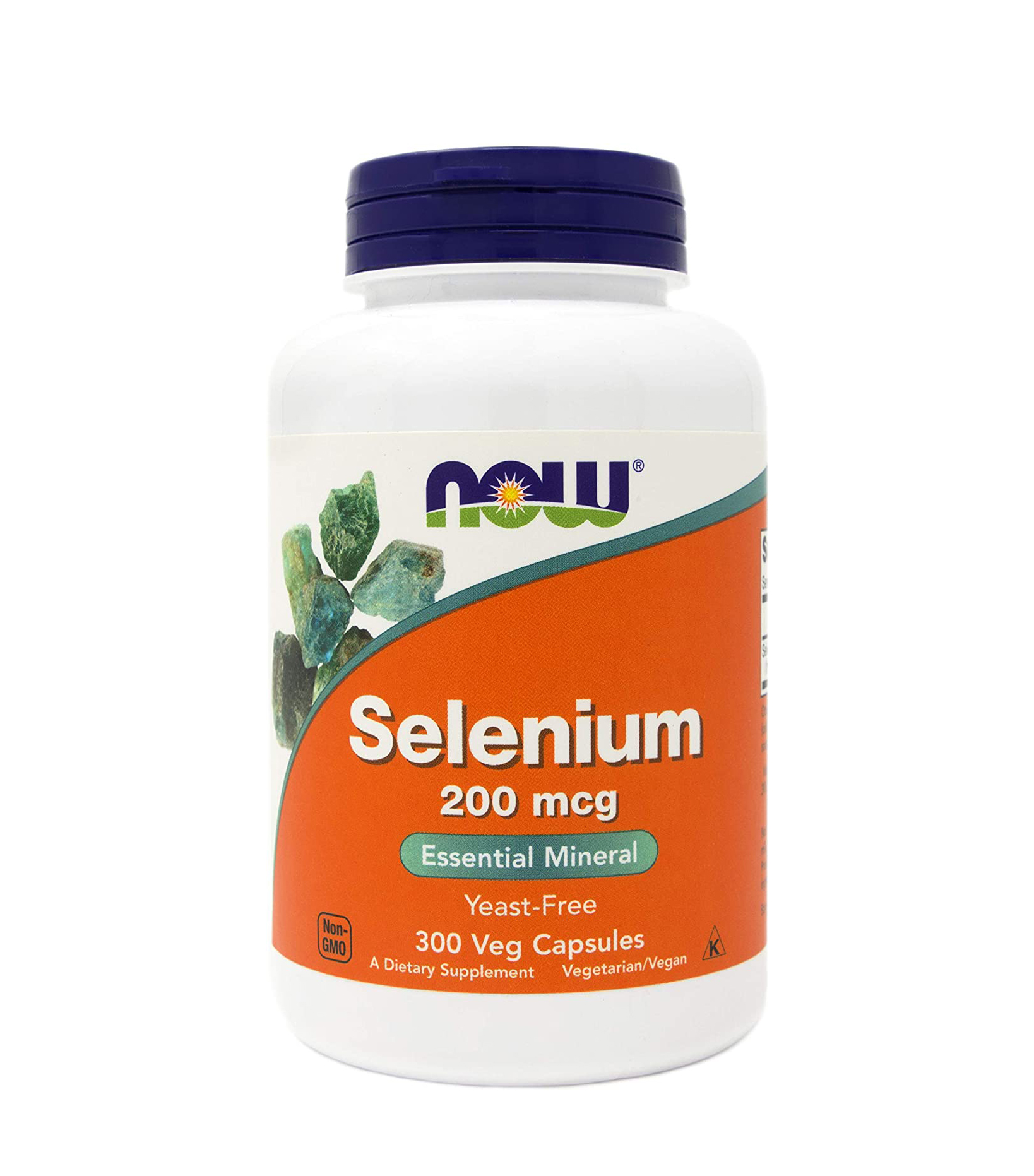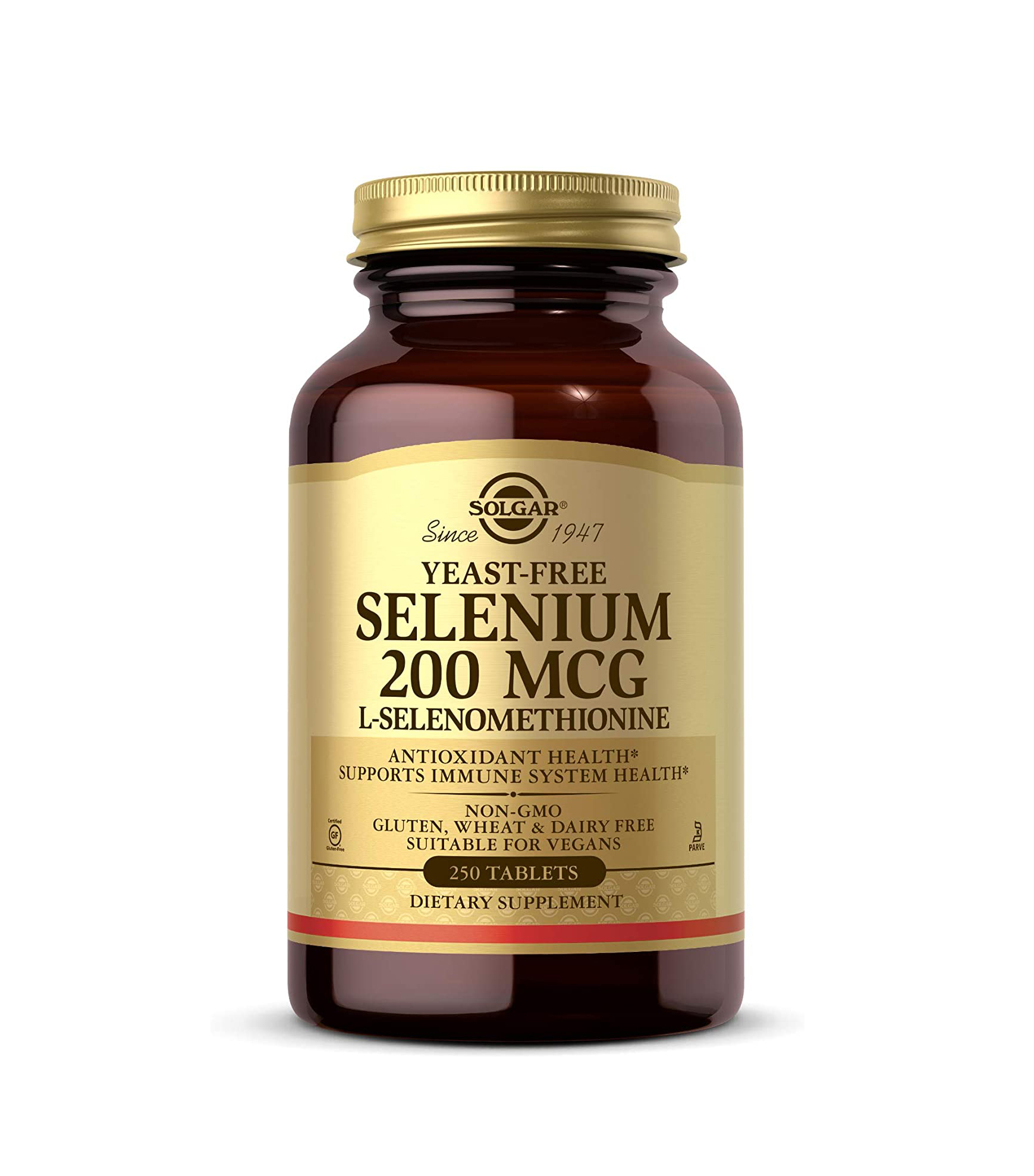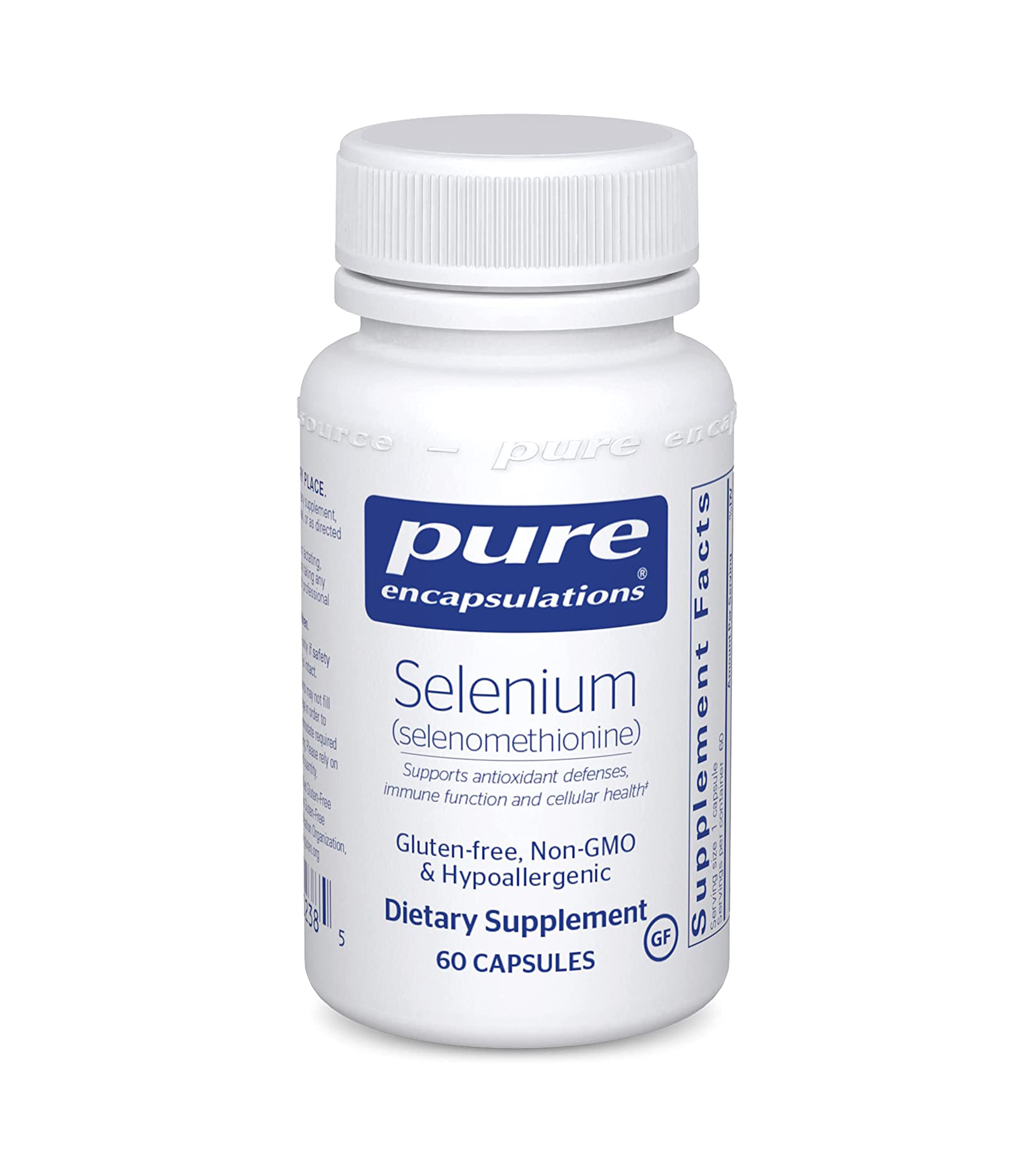Experts Say These 6 Supplements Will Fight Chronic Inflammation

You've probably heard of the word "inflammation," and identify it as something that's "bad," but might not know that much about it. I know for the longest time, that was my exact thought. I didn't realize that there are actually two types of inflammation and one is actually natural and the other can lead to health problems.
"When your body comes into contact with an offending agent (think viruses, bacteria, pollution, or other toxins), the immune system is kicked into high gear to release inflammatory cells to fight back," Vanessa Rissetto, MS, RD, a registered dietitian nutritionist and co-founder of Culina Health. "There are two kinds of inflammation: Acute and chronic. Acute inflammation occurs at the onset of an injury like when you get a paper cut and your finger starts to get red and painful. Those inflammatory cells are released to the surface of the site to help stop bleeding. Chronic inflammation, on the other hand, occurs when inflammatory cells are still being sent, even in the absence of a recent outside injury. This kind of inflammation is more deep-rooted and sometimes we may not even know it's happening as it can present in the form of joint pain, fatigue, or skin rashes."

What exactly causes chronic inflammation? A variety of factors. Tamar Samuels, MS, RDN, NBC-HWC, a registered dietitian, national board-certified health and wellness coach, and co-founder of Culina Health, says that some common causes include stress, poor diet, lack of sleep, and physical inactivity. "Smoking, alcohol use, and obesity can also cause widespread prolonged inflammation," she adds. "These can lead to chronic diseases like diabetes, some cancers, heart disease, and more. Additionally, auto-immune conditions like rheumatoid arthritis, lupus, and Crohn's can also produce systemic inflammation throughout the body."
And Patricia Bannan, MS, RDN, author of From Burnout to Balance and Nature Made Wellness Ambassador, says that long-lasting inflammation may damage healthy cells and tissues and can continue to cause negative effects on health.

So yeah, chronic inflammation is bad news. But the good news is it can be managed. "Following a healthy diet and lifestyle is a great first step to fighting inflammation," says Jennifer Agha-Khan, MS, RD, CDN, a lead dietitian at Culina Health. "This not only means filling up on good-for-you foods like fruits, veggies, whole grains, and healthy fats but also taking care of the mind and body through physical activity, stress management, and sleep. Walking, low-impact movement, journaling, and meditation are all easily accessible ways to get started on combating deep-rooted inflammation."
Both physical activity and sleep are so important—Bannan says that physical activity has been shown to stimulate the innate immune system and decrease inflammation over time, while sleep allows your brain and body to repair and replenish. "Additionally, while there are many foods that can contribute to inflammation, there are also specific vitamins and nutrients that can help reduce inflammation. Having an awareness of pro-inflammatory foods, habits, and environmental factors are key to reducing your risk of inflammation," Bannan adds.
Take a look at the best anti-inflammatory supplements below.
Zinc
"Zinc is an antioxidant and anti-inflammatory agent and also plays a role in immunity. Good sources of zinc include seafood, beef, chicken, pumpkin seeds, and fortified cereal," Rissetto says.
Bannan recommends Nature Made's Wellblends Elderberry with Immune Care, which she says is a combination of zinc, vitamin D3, and elderberry (another powerful antioxidant to reduce inflammation. "It's just one, easy, daily fast-dissolve tablet. Plus, it's gluten-free and has a delicious elderberry flavor," she says.
Vitamin D
"Vitamin D helps regulate the production of inflammatory cells known as cytokines while regulating the spread of pro-inflammatory cells," Samuels says. "Low vitamin D status has been shown to increase the risk of infection and is often seen in individuals with chronic conditions. Vitamin D-rich foods include fish, milk, and fortified cereals/milk alternatives."
Vitamin C
"Vitamin C is an antioxidant that can protect the body from damaging free radicals so that they don't harm your cells (which can lead to inflammation)," Agha-Khan says. "Red bell peppers, kiwi, and broccoli are all excellent sources of vitamin C."
Bannan likes Nature Made's Wellblends ImmuneMAX gummies, which are a combination of high-dose vitamin C and vitamin D3, plus a source of zinc.
Vitamin E
Rissetto explains that vitamin E is both an anti-inflammatory agent and antioxidant, so it works to neutralize free radical damage. "Research shows how vitamin E plays an important role in slowing the progression of some inflammatory chronic conditions like heart disease and cancer," she adds. "Sunflower seeds/oil, almonds, and peanut butter are all good sources of vitamin E."
Omega-3
"Omega-3 fatty acids have potent anti-inflammatory properties that can halt the activation of inflammatory pathways while decreasing cytokine release," Samuels says. "Foods rich in omega-3s include chia, flax, walnuts, and salmon," Bannan says that omega-3 fatty acids, like DHA and EPA, also support a variety of key functions like heart health, brain health, and eye health. "Because the body can't make its own EPA and DHA, it's best to get these key nutrients from food sources, primarily oily fish like mackerel, salmon, and sardines," she explains. "However, if you don't consume enough fish or seafood on a regular basis, you may consider fish oil capsules' benefits to fill in the nutritional gaps." Bannan recommends Nature Made's Ultra Omega-3, which provides the daily recommendation for omega-3 fatty acids from DHA and EPA, is purified to reduce mercury, and is burp-less.
Selenium
Bannan says that this essential mineral functions as an antioxidant and is important for proper functioning of the immune system.
Next, 9 Foods Inflammation Experts Never Eat
Disclosure: These statements have not been evaluated by the Food and Drug Administration. These products are not intended to diagnose, treat, cure, or prevent any disease.
Disclaimer
This article is provided for informational purposes only and is not intended to be used in the place of advice of your physician or other medical professionals. You should always consult with your doctor or healthcare provider first with any health-related questions.
Sarah is lifestyle writer and editor with over 10 years of experience covering health and wellness, interior design, food, beauty, and tech. Born and raised in Los Angeles, she attended New York University and lived in New York for 12 years before returning to L.A. in 2019. In addition to her work at Who What Wear, she held editor roles at Apartment Therapy, Real Simple, House Beautiful, Elle Decor, and The Bump (sister site of The Knot). She has a passion for health and wellness, but she especially loves writing about mental health. Her self-care routine consists of five things: a good workout, “me” time on the regular, an intriguing book/podcast/playlist to unwind after a long day, naps, and decorating her home.
-
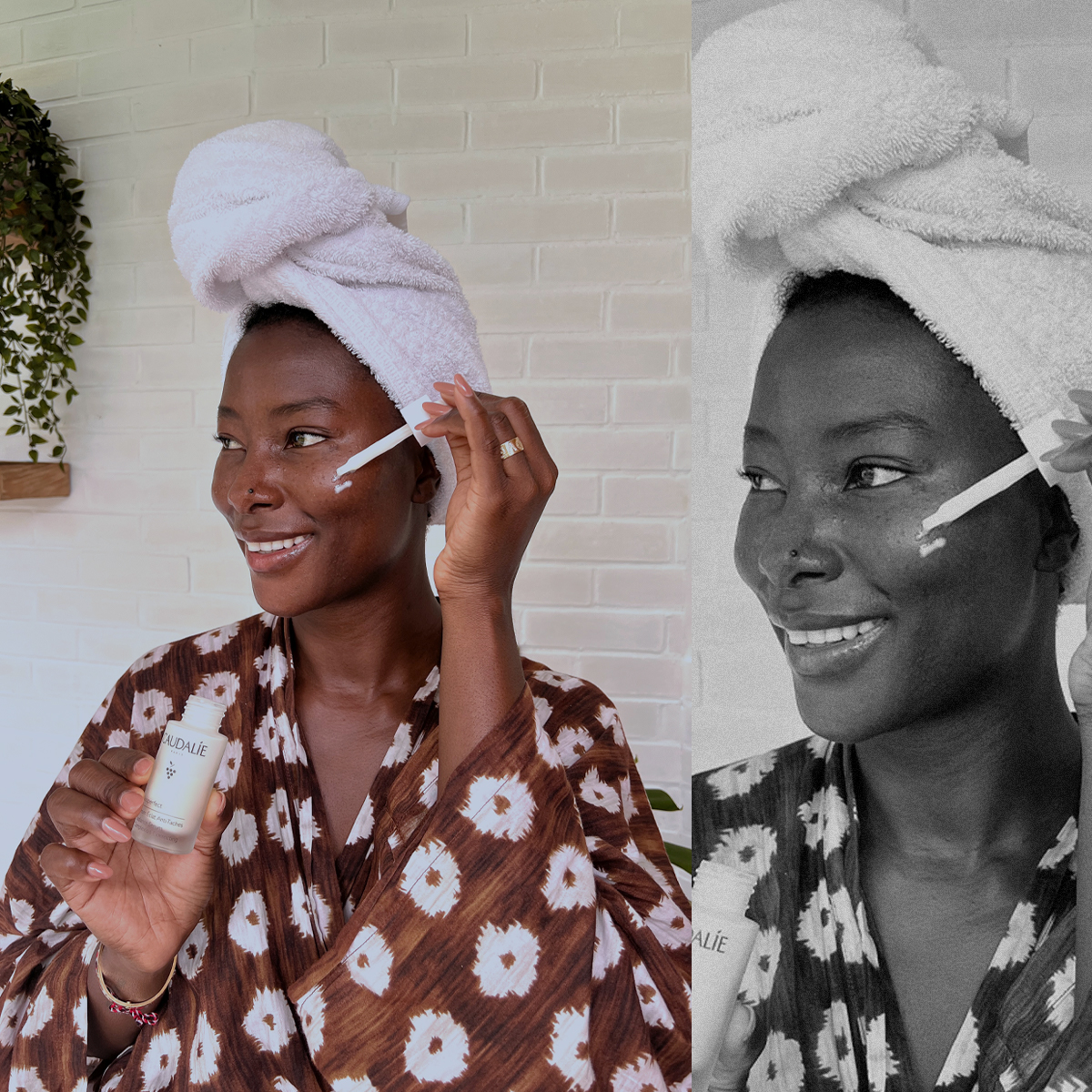 This Beauty Blogger's Wind-Down Routine Is Anything But a Snooze
This Beauty Blogger's Wind-Down Routine Is Anything But a SnoozeSee her go-to workout and her favorite vitamins.
By Virginia Yapp
-
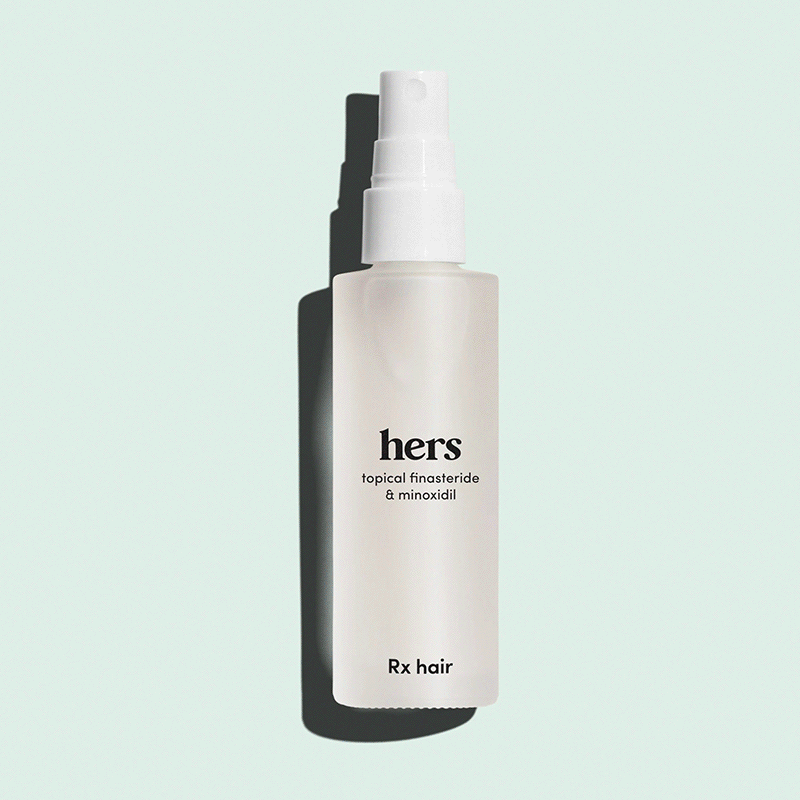 13 Products That Will Step Up Your Self-Care Game From Home
13 Products That Will Step Up Your Self-Care Game From HomeGet that glow from within.
By Natalie Gray Herder
-
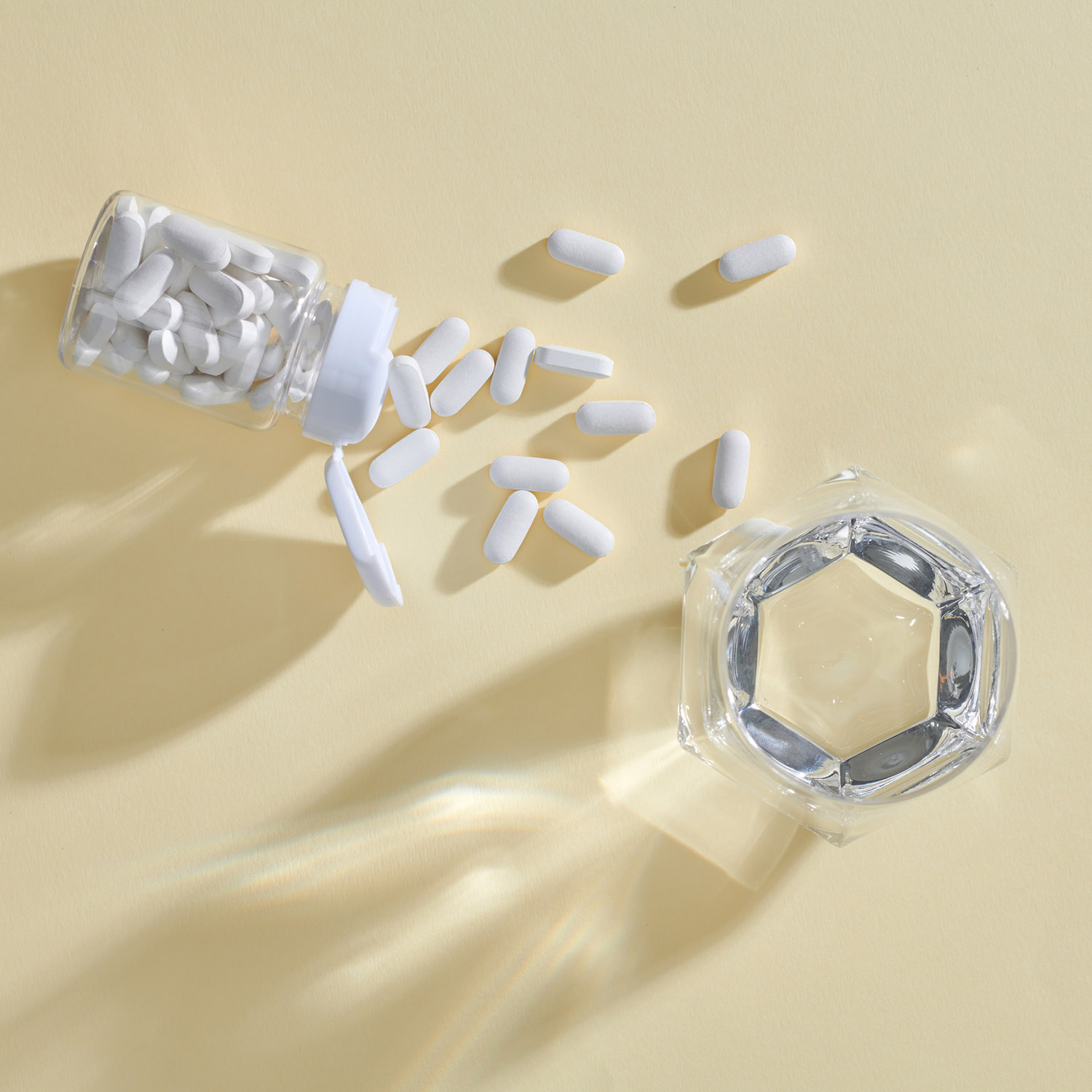 Don't Forget This Vital Ingredient When It Comes to Gut Health
Don't Forget This Vital Ingredient When It Comes to Gut HealthIt's crucial.
By Sarah Yang
-
 FYI: This Vitamin Affects Your Skin, Immune System, and Eye Health
FYI: This Vitamin Affects Your Skin, Immune System, and Eye HealthIt's a big deal.
By Sarah Yang
-
 This Fatigue-Fighting Solution Might Be Better Than a Cup of Coffee
This Fatigue-Fighting Solution Might Be Better Than a Cup of CoffeeIt will give you a boost.
By Sarah Yang
-
 Taking This Supplement Improves Sleep, Regulates Blood Pressure, and More
Taking This Supplement Improves Sleep, Regulates Blood Pressure, and MoreIt's an essential mineral.
By Sarah Yang
-
 The Only Wellness Deals Worth Buying on Amazon Prime Day
The Only Wellness Deals Worth Buying on Amazon Prime DayTime to shop.
By Sarah Yang
-
 Taking This Daily Supplement Can Give You Whole-Body Protection
Taking This Daily Supplement Can Give You Whole-Body ProtectionAre you getting enough of it?
By Sarah Yang
